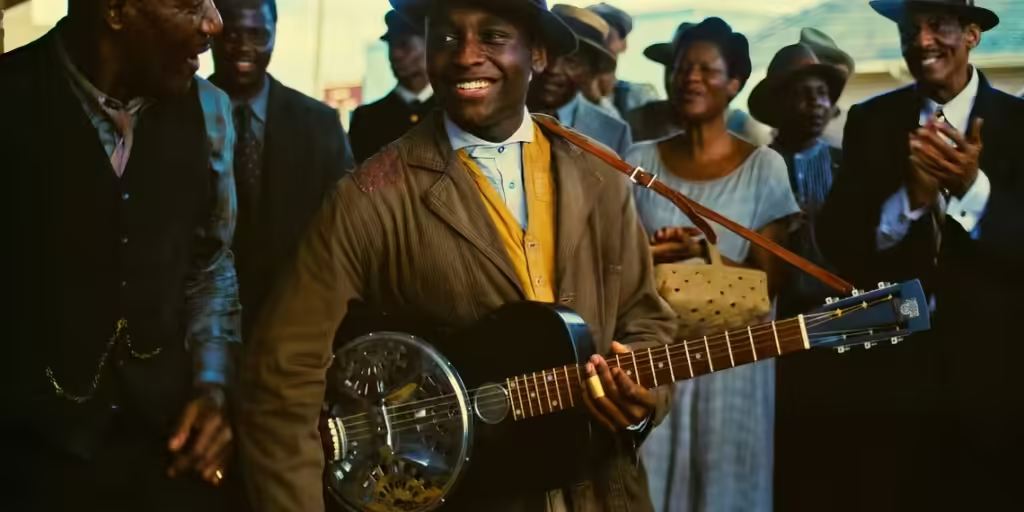
Subordination. Folktales. Vampires. How Coogler’s “Sinners” tips the line between historical storytelling and musical renaissance.
Today, the American music industry stands as a cornerstone of blissful intersections, making it the most inclusive of genres and cultural narratives. The world is aware of the region’s double colonization -one that was from both outside and within. Though founded on what is believed to be the “land of the free”, American music fails to portray the significance of this triumph.
Ryan Coogler’s film, Sinners (2025), depicts this as a day-long tale of opaqueness, brought about by vulturous transgressions of people. “Blues” as a genre takes center stage as the film navigates the modern-day consequences of past vulnerabilities. Furthermore, what inevitably drives the story forward is the composer Ludwig Göransson’s delicate interweaving of ideas and notes, making Black music’s influence on the world transparent.
Sinners and The Transcendence of Experience
The movie is an obvious metaphor for the systemic injustices that have plagued the Black, Native American, and minority Asian dwellers of the land. How it does this, and does so spectacularly, is through their music. At the time of slavery, music became a vital part of their lives to serve as a means of communication, generational transcendence, as well as a coping mechanism against the atrocities they faced. The spiritual forms of music that emerged from these tense experiences inspired and informed future genres like Gospel, Jazz, and Blues.
The movie takes place in Mississippi, the birthplace of the Blues. Described as the music for the despondent, wooed, and troubled, it is elevated by Sammy, played by Miles Canton, whose voice is shunned by a father who serves God. In more than one way, Sammy alludes to this through the film’s most iconic montage, the song — I Lied to You.
“Blues wasn’t forced on us like that religion, we brought this from home.”
This quote alone elucidates the nature of oppression that took place in America in the pre-Civil War times. Black music faced more structural barriers as “race records”. It later had white-owned businesses secede to acceptance because of widespread commercial demand. This marked the precursor for the genre we all widely know as “Rhythm and Blues” or “R&B”.
The Horrors of Allusion
Despite the culmination of Black experience showing solidarity in the face of tension, the movie brought into purview the appropriative tendencies of the ‘Vampires’, who ‘fed’ on the music of the people, bleeding them dry of their heritage. Coogler inserts this obvious jab to show the world the realities of the pop culture we worship. Every genre, and every piece of music we consume today is built on the backs of those who remain uncredited since time immemorial. A quote from the movie that stands out in this regard is:
“See, white folks, they like the blues just fine. They just don’t like the people who make it.”
Recently, many artists, including Kanye West, came to the limelight for their exposé into the realities of the industry and how they perform “contemporary slavery” through their rigid contractual indentures. Taking his lineage into his own hands, Coogler demarcates the line between “cultural appropriation” and “cultural appreciation”. Moreover, he pushes the latter as a way for the world to recognize the foundations of the modernity we blindly imbibe. In this sense, Sinners is more than a vampiric tale of the early 20th century; it is a call for collaboration and for respect to the people who catalyzed the melodies we so enjoy.
Read more such pieces at The World Times.



